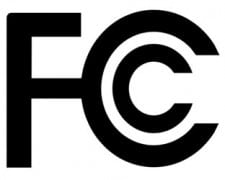 Cable companies led by Comcast have won FCC approval 5-0 to start encrypting basic- tier signals in a move to fight theft and reduce service calls.
Cable companies led by Comcast have won FCC approval 5-0 to start encrypting basic- tier signals in a move to fight theft and reduce service calls.
FCC Chairman Julius Genachowski asked fellow commissioners to lift an encryption prohibition in place since 1994 and the agency last year proposed allowing encryption following requests from companies, including Cablevision Systems and RCN.
Cable companies already encrypt offerings on more expensive channel packages that feature more programming. The FCC had prohibited encryption on basic service so customers wouldn’t need to rent a set-top box to view local stations. The prohibition didn’t hold for satellite providers DirecTV and Dish Network or for cable competitors such as TV services offered by AT&T and Verizon, reported Bloomberg.
Almost one-fifth of 134 households whose cable connections were cut off by RCN during an audit in Chicago last year subsequently contacted the company to subscribe, “clear evidence that they had previously been viewing cable without paying,” the company told the FCC in a filing last year.
All in all, the NCTA in 2004 estimated that about 5% of homes near cable lines accessed service without paying, resulting in almost $5 billion in lost revenue. That was more than 8% of industry revenues that year, according to a filing at the FCC by the trade group.
“By permitting cable operators to join their competitors in encrypting the basic service tier, the commission has adopted a sensible, pro-consumer approach that will reduce overall in- home service calls,” Michael Powell, NCTA President , said in a statement. “Encryption of the basic tier also enhances security of the network which reduces service theft that harms honest customers.”
Encrypting basic service would let Comcast start and stop service remotely, which customers prefer to scheduling an appointment with a technician, Philadelphia-based Comcast said in a filing at the FCC.
Cablevision found that, when it encrypted basic service under a waiver from the FCC, it almost eliminated the need to send crews in trucks to disconnect service, the company told the agency in a filing.
RBR-TVBR observation: As we said back in August, there was absolutely no reason the cable companies shouldn’t be allowed to encrypt—and that it would likely be approved. They have a right to protect their service from theft. The only downside of the ruling is that many less cable repair personnel will be needed to do disconnects that there will likely be significant job losses.






It reads to me that by encrypting all channels, the cable companies will make bigger profits than ever before. The encription would then require even basic cable users to RENT a set top box AND would reduce the money spent on employees.
Great for the cable companies, not so much for people.
I can understand both sides. When the cable company can leave you connected when you cut service they do not have to send a truck with a guy who has to disconnect the coaxial cable in the junction box, instead you have to bring the cable box or they would pick it up. When the next person in a house or apartment wants service it could be “connected” within minutes after opening an account. The cable company would just deliver the box or you would pick it up. The cable company saves a little money by making you do the work when possible. The story mentioned the service theft issue but not the ability to run constant advertising on one channel so anyone connecting the cable to their TV would see the information needed to order cable when you move into a house where the cable is still connected.
From the customer view… I want to just connect the cable to the TV and watch without some dumb glitchy cable box making it harder to just watch. I do not want to rent the cable box, I want to get more channels. The Customer Service Representative might know nothing of the cable box and that is a nuisance when I have a problem. When TeleCable was bought by TCI (Totally Corrupt Incorporated) now known as Comcast I became a Customer Service Representative in Dallas. There was another CSR who knew nothing about the cable box that an Arlington subscriber was using and did not realize that the customer had a good cable box but the cable service was down. That incompetent CSR told the subscriber that he would have to bring the cable box to the company and that it was “fried”. I was familiar with that type of cable box because I was an Arlington CSR and a Pay Per View Coordinator before I was a Dallas CSR so I know that the CSR cost the customer time and money because she did not have any training to speak of. What happens when the cable company wants to dump a crappy old cable box on the subscriber? When I was a PPV Coordinator the company was trying to dump the old monophonic unreliable cable boxes on customers. Later when I escaped from Pay Per View and became a CSR I tried to specify better quality cable boxes and heard a lot of noise from management as a result. I was a Customer Service Representative not a Company Service Representative because the customer comes first.
Comments are closed.